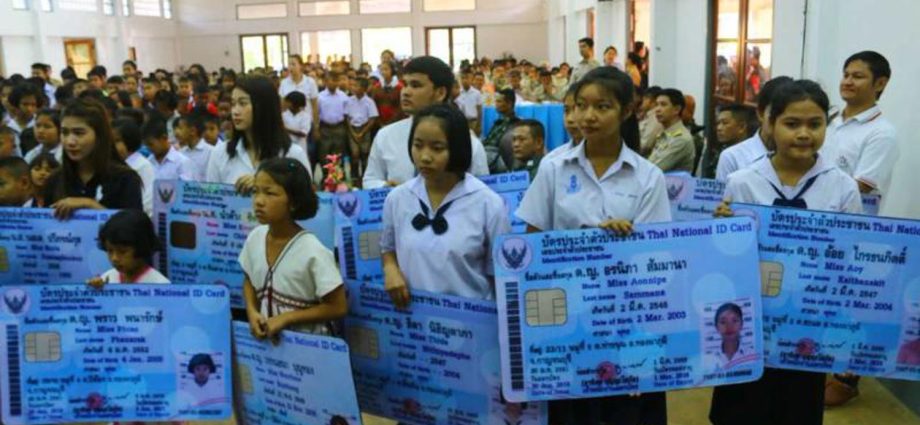Govt defends its citizenship policy

The government has defended its decision to grant Thai citizenship to migrants and members of ethnic minorities, saying the policy is in line with the law.
The cabinet on Tuesday approved a policy to grant Thai citizenship to over 483,000 migrants and members of ethnic minorities who have lived in Thailand long-term or were born in the kingdom.
According to Prime Minister Paetongtarn Shinawatra, the decision seeks to address longstanding citizenship and residency issues while stimulating the economy by removing red tape that prevents these people from working.
However, critics have spoken out against the policy, saying it panders to migrants.
Direkrit Janekrongtham, a former senator, wrote on Facebook that almost 500,000 migrants will enjoy the same rights and benefits as Thais. He added that they are expected to be grateful and loyal to the coalition parties that pushed for the policy.
He stated that they will now have the right to vote in local and national elections, apply to run in elections and hold political office, be members of a political party, set up a political party, and vote in referendums.
He wrote that they would also have the right to land and property ownership, to be labour union members, and to set up a labour union.
“Does the government really put the country’s interest before political parties’ benefits? Why not adhere to the Nationality Act, which regulates naturalisation, instead of issuing such a cabinet resolution?” Mr Direkrit wrote.
Responding to criticism, Interior Ministry spokeswoman Traisulee Taisaranakul said that the policy seeks to streamline and boost efficiency in the application for Thai citizenship.
“The policy is in line with the existing rules and regulations. It is not an attempt to suspend enforcement of those rules. The two groups mentioned above have already applied for Thai citizenship and permanent residence,” Ms Traisulee said.
She also said that under a proposal from the National Security Council (NSC), if any of those granted Thai citizenship are later found to be a threat to public safety or national security, the Interior Ministry can revoke their citizenship under the Nationality Act.
“The policy is in line with international human rights principles and the government’s efforts to promote equality,” she said.
Of the more than 480,000 who will be granted Thai citizenship, about 340,000 entered Thailand before 1999, and the rest were born in the country. Ms Traisulee said that adding the old rules and regulations prevented them from making a decent living in Thailand.
Deputy Prime Minister Phumtham Wechayachai on Thursday brushed aside criticism that the policy seeks to please migrants. He insisted that the policy is meant to speed up and facilitate the application process for Thai nationality.
“The government acts in line with the law. Measures will also be in place to monitor them. Their citizenship will be revoked if they act improperly,” said Mr Phumtham, who also serves as defence minister.
The policy, proposed by the NSC, expedites the process of granting legal status to ethnic minority individuals residing in the country. The prime minister said 825,635 such individuals reside in Thailand, with 483,626 awaiting status confirmation.
Government spokesman Jirayu Huangsab previously said the policy update replaces an earlier 2021 cabinet resolution. He said Thailand has experienced waves of migration into the community, with the first group arriving as early as 1984 and the second between 2005 and 2011.
Additionally, there are Thai-born children from minority groups and unregistered migrants. Without the new measures, processing their status could take up to 44 years, said Mr Jirayu.
This updated framework will simplify eligibility checks, allowing applicants to self-certify their qualifications and criminal history instead of undergoing lengthy investigations by multiple agencies, he said.

